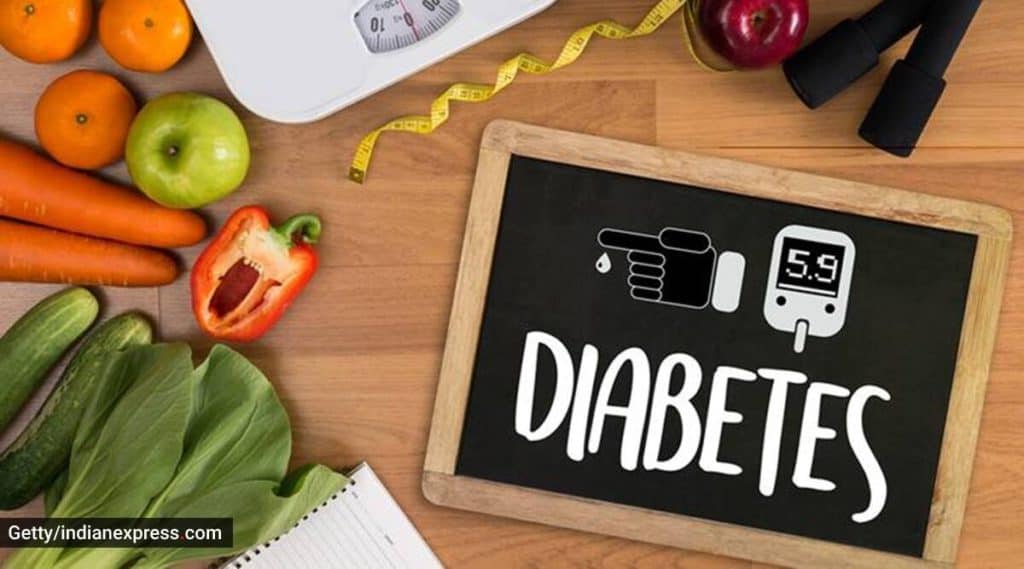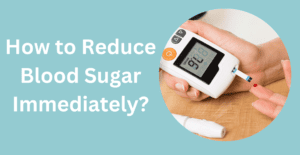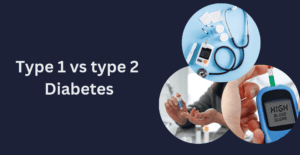Type 1 diabetes is a chronic autoimmune disease characterized by the destruction of insulin-producing beta cells in the pancreas. It results in an inability to produce insulin, leading to high blood glucose levels and a range of related symptoms and complications. Early type 1 diabetes diagnosis and prompt initiation of treatment are crucial in managing the disease and preventing long-term health issues. type 1 diabetes treatment includes insulin therapy, glucose monitoring, and lifestyle changes such as Diabetes Diet Plan and exercise. Regular medical check-ups, taking type 1 diabetes medications, and monitoring blood glucose levels are also important components of managing the disease.
Diagnosis of Type 1 Diabetes
Let alone knowing the Diabetes Meaning & Causes is not enough. Type 1 diabetes is a chronic autoimmune disease that affects millions of people worldwide. It is characterized by the destruction of insulin-producing beta cells in the pancreas, resulting in an inability to produce insulin and high blood glucose levels. Early type 1 diabetes diagnosis and prompt initiation of treatment are crucial in managing the disease and preventing long-term health issues.
Type 1 diabetes can develop suddenly and symptoms may appear quickly. Common symptoms include:
- Increased thirst
- Frequent urination
- Extreme hunger
- Weight loss
- Fatigue
- Blurred vision
If you are experiencing any of these symptoms, it is important to seek medical attention as soon as possible.
The two main blood tests used to type 1 diabetes diagnosis are the fasting plasma glucose test and the oral glucose tolerance test. The fasting plasma glucose test measures blood glucose levels after fasting for at least 8 hours. The oral glucose tolerance test measures blood glucose levels 2 hours after drinking a sweet liquid.
In some cases, a doctor may also perform antibody tests to confirm the type 1 diabetes diagnosis. These tests check for the presence of specific antibodies that are often present in people with type 1 diabetes.
It is important to note that while these tests can provide strong evidence of type 1 diabetes, a final type 1 diabetes diagnosis can only be made by a doctor based on a combination of symptoms, blood tests, and medical history.
Treatment of Type 1 Diabetes
The exact cause of type 1 diabetes is not fully understood, but it is believed to be a combination of genetic and environmental factors. Here are some of the known factors that may contribute to the development of type 1 diabetes:
- Genetics: Family history and specific genetic variations can increase the risk of developing type 1 diabetes.
- Autoimmunity: The immune system mistakenly attacks and destroys the insulin-producing beta cells in the pancreas, leading to an inability to produce insulin.
- Environmental triggers: Exposure to viruses or other environmental factors may trigger the immune system to attack and destroy the beta cells in people who are genetically susceptible to the disease.
- Vitamin D deficiency: Low levels of vitamin D have been associated with an increased risk of type 1 diabetes.
- Early exposure to cow’s milk: Early exposure to cow’s milk has been linked to an increased risk of type 1 diabetes in some studies.
It is important to note that these factors do not cause type 1 diabetes on their own, and the exact cause is still not fully understood. A combination of genetic and environmental factors likely plays a role in the development of the disease.
Treatment of type 1 diabetes involves maintaining normal blood glucose levels and preventing complications. Here are the main components of type 1 diabetes treatment:
- Insulin therapy: People with type 1 diabetes require insulin injections or an insulin pump to replace the insulin their bodies can no longer produce along with type 1 diabetes medications.
- Glucose monitoring: Regular monitoring of blood glucose levels is crucial to assess the effectiveness of insulin therapy and make any necessary adjustments along with type 1 diabetes medications.
- Healthy eating: A balanced diet that is high in fiber and low in sugar is important along with type 1 diabetes medications for managing blood glucose levels.
- Physical activity: Regular physical activity can help regulate blood glucose levels and improve overall health.
- Regular medical check-ups: Regular visits to a doctor or endocrinologist, and type 1 diabetes medications are important to monitor blood glucose levels, assess the effectiveness of treatment, and identify any complications.
- Complication management: Regular monitoring and prompt treatment of any complications, such as diabetic retinopathy, neuropathy, and nephropathy, are crucial for preventing long-term health issues.
It is important to work with a doctor or endocrinologist to develop a comprehensive treatment plan that is tailored to your individual needs and circumstances. Self-management and lifestyle changes, such as healthy eating and physical activity, are also important components of type 1 diabetes treatment.
Home Remedies & Lifestyle Tips to treat Type 1 Diabetes
While there is no cure for type 1 diabetes, there are some home remedies and lifestyle tips that can help manage the disease and improve overall health. Here are a few to consider:
- Healthy eating: A balanced diet that is high in fiber, low in sugar, and contains plenty of fruits and vegetables can help regulate blood glucose levels and manage weight.
- Physical activity: Regular physical activity, such as walking, biking, or swimming, can help regulate blood glucose levels, improve insulin sensitivity, and prevent complications.
- Stress management: Stress can affect blood glucose levels, so it is important to find ways to manage stress, such as through exercise, meditation, or therapy.
- Sleep: Getting enough quality sleep is important for overall health and can help regulate blood glucose levels.
- Avoid smoking: Smoking can increase the risk of complications and negatively impact overall health.
- Limit alcohol consumption: Drinking alcohol in moderation can help regulate blood glucose levels, but excessive alcohol consumption can have negative effects.
- Regular check-ups: Regular visits to a doctor or endocrinologist can help monitor blood glucose levels and prevent complications.
It is important to note that these remedies and tips should be used in conjunction with prescribed treatment, such as insulin therapy and glucose monitoring, and not as a substitute. It is also important to consult a doctor before making any changes to your treatment plan.
The Bottom Line
Type 1 diabetes is a chronic condition in which the body can no longer produce insulin, a hormone that regulates blood glucose levels. The exact cause of type 1 diabetes is not fully understood but is believed to be a combination of genetic and environmental factors. The main components of type 1 diabetes treatment involve insulin therapy, glucose monitoring, healthy eating, physical activity, and regular medical check-ups. Home remedies and lifestyle tips, such as healthy eating, physical activity, stress management, sleep, avoiding smoking, limiting alcohol consumption, and regular check-ups, can help manage the disease and improve overall health. However, it is important to use these remedies and tips in conjunction with prescribed treatment and to consult a doctor before making any changes to your treatment plan.
FAQs
How can I cure Type 1 Diabetes Naturally?
There is currently no type 1 diabetes cure. The condition requires lifelong treatment and management to regulate blood glucose levels and prevent complications. While there are some home remedies and lifestyle changes that can help manage the disease, they should not be considered a type 1 diabetes cure and should always be used in conjunction with prescribed treatment and medical supervision.
It is important to work closely with a doctor or endocrinologist to develop a comprehensive treatment plan that takes into account your individual needs and circumstances. This may involve insulin therapy, glucose monitoring, healthy eating, physical activity, stress management, and regular medical check-ups. Making lifestyle changes and using home remedies, such as eating a balanced diet, getting regular exercise, managing stress, and avoiding smoking, can also help improve overall health and manage the disease.
While some alternative therapies, such as herbal remedies and acupuncture, may have potential benefits, it is important to speak with a doctor before using any alternative treatments, as they may interfere with conventional treatment and have potential side effects. There is no evidence that alternative therapies can type 1 diabetes cure type 1 diabetes, so it is important to rely on conventional treatment and medical supervision to manage the disease.
What is the Best Treatment for Type 1 Diabetes?
The best treatment for type 1 diabetes varies from person to person and depends on individual circumstances. However, the following components are considered the cornerstone of type 1 diabetes treatment:
- Insulin therapy: People with type 1 diabetes require insulin injections or an insulin pump to replace the insulin their bodies can no longer produce.
- Glucose monitoring: Regular monitoring of blood glucose levels is crucial to assess the effectiveness of insulin therapy and make any necessary adjustments.
- Healthy eating: A balanced diet and Diabetes Recipes that are high in fiber and low in sugar is important for managing blood glucose levels.
- Physical activity: Regular physical activity can help regulate blood glucose levels and improve overall health.
- Regular medical check-ups: Regular visits to a doctor or endocrinologist are important to monitor blood glucose levels, assess the effectiveness of treatment, and identify any complications.
Can Type 1 Diabetes be cured completely?
No, type 1 diabetes cannot be cured(type 1 diabetes cure) completely at this time. It is a chronic condition in which the body can no longer produce insulin, a hormone that regulates blood glucose levels. While there is currently no cure(type 1 diabetes cure) for type 1 diabetes, the condition can be managed effectively with the right type 1 diabetes treatment and care. Instead, Type 2 Diabetes is something that can be cured and reversed. Know more about Type 1 Diabetes Vs Type 2 Diabetes.
The main components of type 1 diabetes treatment(type 1 diabetes cure) involve insulin therapy, glucose monitoring, healthy eating, physical activity, and regular medical check-ups. In addition, lifestyle changes and home remedies, such as stress management, sleep, avoiding smoking, limiting alcohol consumption, and a balanced diet, can help improve overall health and manage the disease.
While there is ongoing research into new type 1 diabetes treatment(type 1 diabetes cure), including the use of stem cells and the development of artificial pancreas technology, the best way to manage the condition at present is through a combination of conventional type 1 diabetes treatment(type 1 diabetes cure), self-management, and regular medical supervision. It is important to work closely with a doctor or endocrinologist to develop a comprehensive type 1 diabetes treatment plan and type 1 diabetes diagnosis that takes into account your individual needs and circumstances.
Can Type 1 Diabetes be cured by Exercise?
Exercise can be an important component of managing type 1 diabetes, but it cannot cure(type 1 diabetes cure) the condition. Type 1 diabetes is a chronic condition in which the body can no longer produce insulin, a hormone that regulates blood glucose levels. Exercise can help regulate blood glucose levels and improve overall health, but it cannot cure the underlying condition.
Physical activity can help improve insulin sensitivity, increase glucose uptake by the muscles, and reduce the need for insulin. However, it is important to work with a doctor or endocrinologist to develop a safe and effective type 1 diabetes diagnosis exercise plan that takes into account your individual needs and circumstances.
Exercise can also have an impact on blood glucose levels, so it is important to monitor glucose levels before, during, and after physical activity and to adjust insulin doses as needed. In addition, it is important to have a source of quick-acting glucose, such as glucose gel or candy, on hand in case of low blood glucose during physical activity.
While exercise is an important component of managing type 1 diabetes, it should not be relied upon as a cure(type 1 diabetes cure) for the condition. Instead, it should be used in conjunction with other components of type 1 diabetes treatment, such as insulin therapy, glucose monitoring, healthy eating, and regular medical check-ups, type 1 diabetes diagnosis, read legit Diabetes Blogs to manage the disease effectively.









